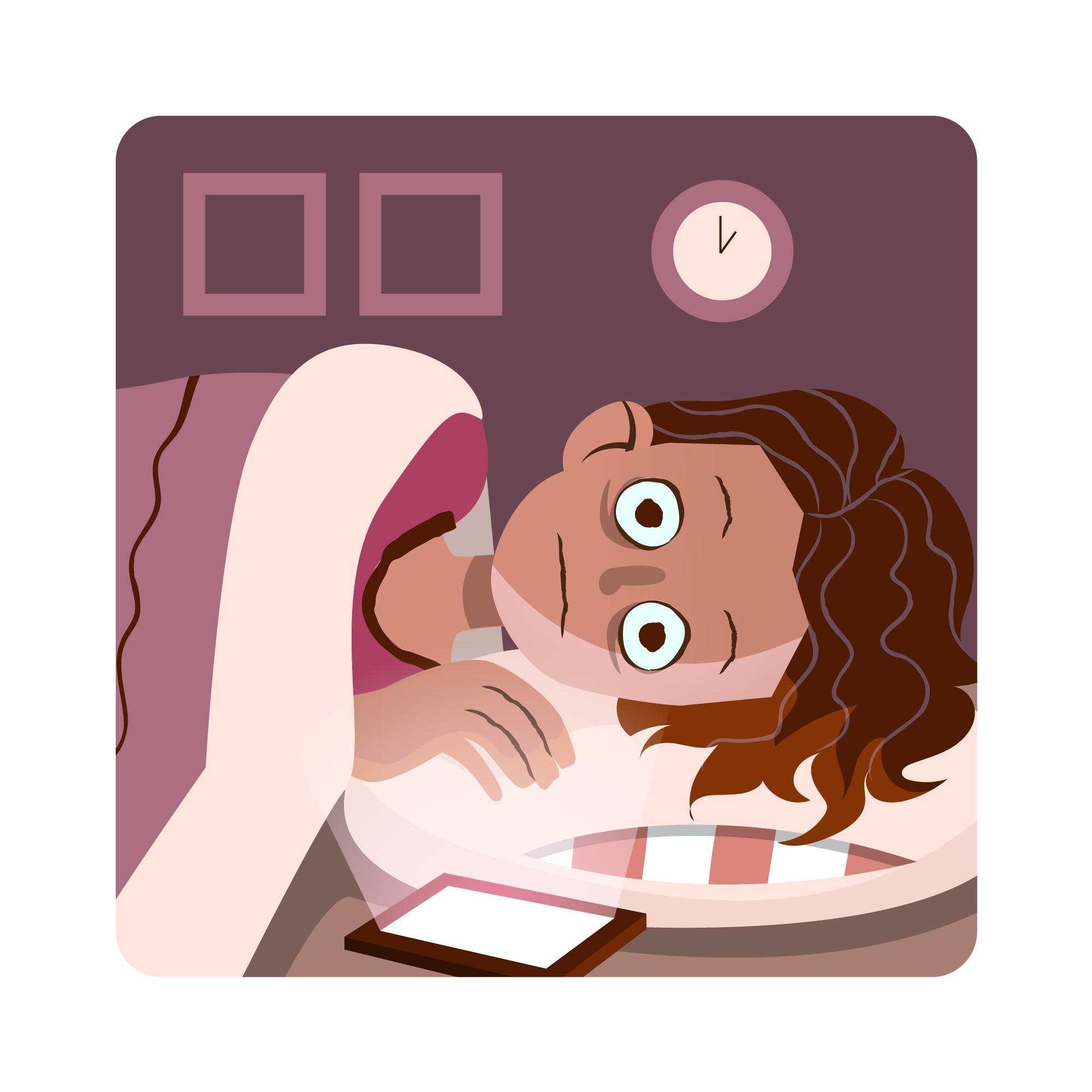Have you ever found yourself on the brink of sleep, only to be suddenly jolted awake by a rush of anxiety and fear? If so, you may be experiencing what are commonly known as mini panic attacks when falling asleep. These episodes can be perplexing and distressing, disrupting your ability to achieve restful sleep and impacting your overall well-being. In this blog, we'll delve into the phenomenon of mini panic attacks during bedtime, shedding light on their causes, symptoms, and strategies for managing them effectively.
What Are Mini Panic Attacks?
Mini panic attacks, also referred to as nocturnal panic attacks or sleep anxiety, are brief episodes of intense fear or discomfort that occur during the process of falling asleep or waking up from sleep. Unlike full-blown panic attacks, which can occur at any time of day, mini panic attacks specifically occur in relation to sleep. They can manifest as sudden surges of panic, accompanied by physical sensations such as rapid heartbeat, sweating, and shortness of breath. Understanding the distinct nature of these episodes is essential for devising appropriate coping strategies.
The Science Behind Falling Asleep and Anxiety
To comprehend why mini panic attacks occur during bedtime, it's essential to grasp the intricate interplay between sleep and anxiety. The sleep cycle is a complex process characterized by distinct stages, each serving a unique function in restoring and rejuvenating the body and mind. Anxiety disrupts this delicate balance, interfering with the body's ability to transition smoothly between sleep stages. As a result, individuals prone to anxiety may find themselves more susceptible to experiencing mini panic attacks during the vulnerable period of falling asleep.
Recognizing Symptoms of Mini Panic Attacks
Identifying the symptoms of mini panic attacks is crucial for distinguishing them from other sleep disturbances or anxiety-related phenomena. Physical symptoms such as palpitations, trembling, and sensations of choking or smothering are common indicators of these episodes. Additionally, individuals may experience psychological symptoms such as intense fear, a sense of impending doom, or a detachment from reality. Behavioral manifestations, such as restlessness or an inability to relax, further contribute to the distress associated with mini panic attacks.
Understanding the Impact on Sleep Quality
The repercussions of mini panic attacks on sleep quality cannot be overstated. Beyond the immediate discomfort they cause, these episodes can significantly disrupt the natural progression of the sleep cycle, leading to fragmented and unrestful sleep. Over time, chronic sleep disturbances can exacerbate anxiety symptoms, creating a vicious cycle of sleeplessness and heightened anxiety. Addressing mini panic attacks is thus essential not only for improving sleep quality but also for safeguarding mental health and well-being.
Coping Strategies and Techniques
Fortunately, there are various strategies and techniques available for managing mini panic attacks when falling asleep. Relaxation techniques such as deep breathing, progressive muscle relaxation, and visualization can help calm the body and mind, easing the transition into sleep. Cognitive-behavioral strategies, including challenging negative thoughts and practicing mindfulness, can also be effective in reducing anxiety and promoting relaxation before bedtime. Establishing a consistent bedtime routine and creating a sleep-conducive environment are additional steps that can enhance sleep quality and reduce the likelihood of experiencing mini panic attacks.
Seeking Professional Help
If mini panic attacks persist or significantly interfere with daily functioning, seeking professional help may be advisable. A healthcare provider or mental health professional can offer personalized guidance and support, tailoring treatment approaches to address underlying anxiety disorders or sleep disturbances. Therapy, medication, or a combination of both may be recommended depending on the individual's specific needs and preferences. Remember, reaching out for help is a sign of strength, and you deserve to receive the support necessary to overcome these challenges.
Real-Life Experiences and Testimonials
To provide a deeper understanding of mini panic attacks and their impact, it can be helpful to hear from individuals who have firsthand experience with these episodes. Many people have shared their stories of coping with mini panic attacks while falling asleep, offering insights into what has worked for them and how they've navigated the journey toward better sleep and mental well-being. By sharing these experiences, we aim to foster a sense of solidarity and empowerment among readers facing similar struggles.
Conclusion
Mini panic attacks when falling asleep are a common yet often misunderstood phenomenon that can have profound effects on sleep quality and overall mental health. By unraveling the mystery surrounding these episodes and exploring effective coping strategies, we hope to empower individuals to reclaim restful sleep and alleviate the burden of anxiety. Remember, you are not alone in your journey, and support is available to help you overcome these challenges and embrace a healthier, more restorative sleep experience.
